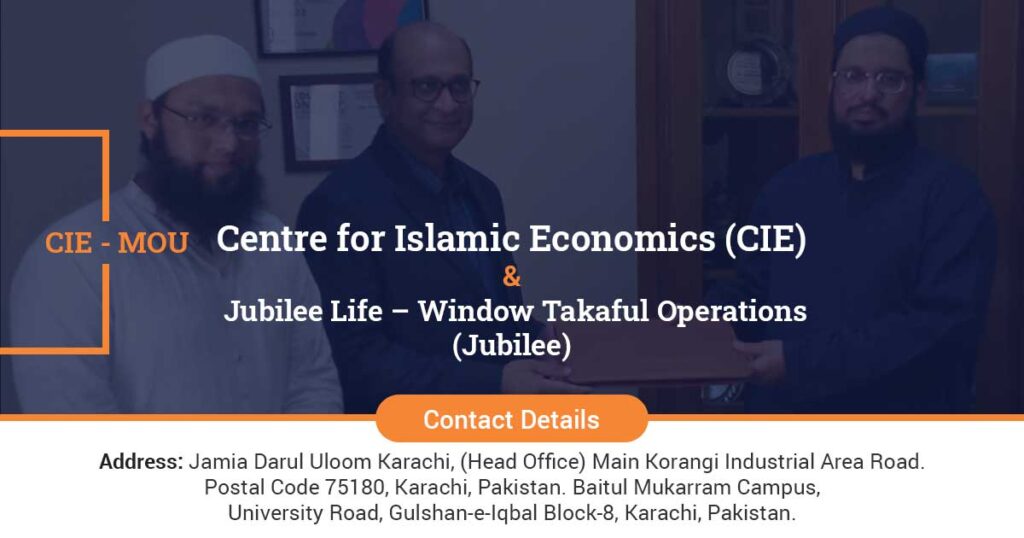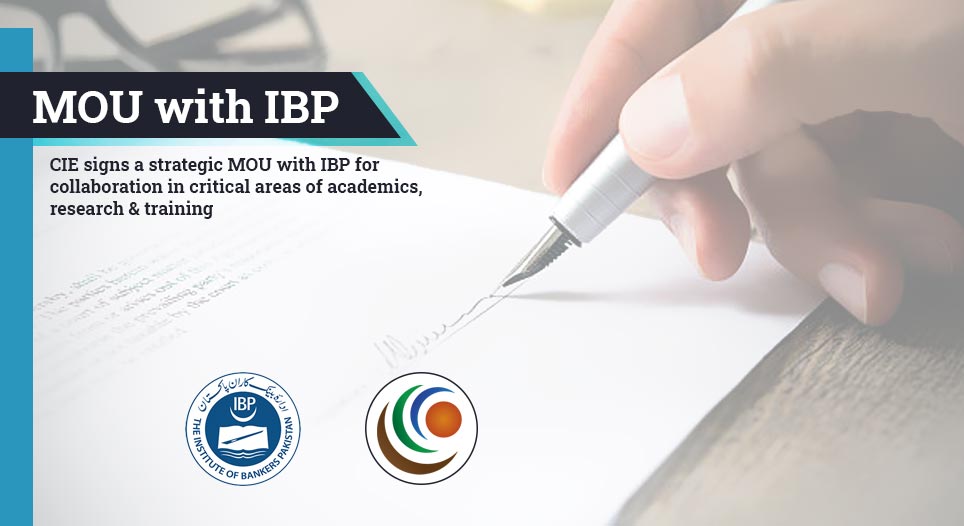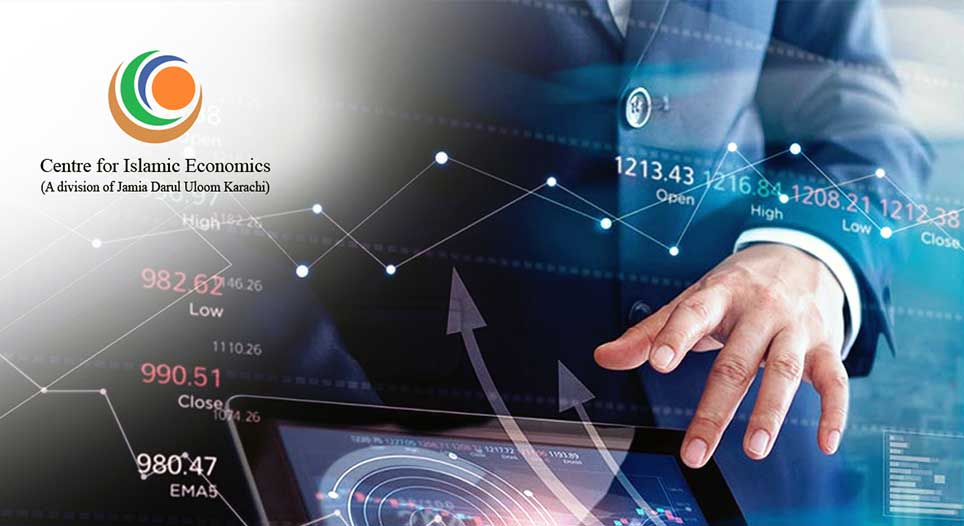Exploring Commercial Ethics and Islamic Banking

Introduction In today’s globalized world, commercial ethics and economic systems play a crucial role in shaping the business landscape. One such system that has gained significant attention is the Islamic economics system. Unlike conventional banking, Islamic banking operates on the principles of Shariah law, which emphasizes ethical and responsible financial practices. In this blog post, […]
CIE and Jubilee Life – Memorandum of Understanding

CIE – MOU Centre for Islamic Economics (CIE) and Jubilee Life – Window Takaful Operations (Jubilee);have signed a memorandum of understanding to collaborate on research and academic programs in Takaful. The MoU was signed by Executive Director-CIE Dr. Muhammad Imran Ashraf Usmani and Group Head – Jubilee Takaful Retail Distribution Mr. Muhammad Munawar Khalil The […]
Promote takaful with joint efforts

Executive Director – Centre for Islamic Economics-(CIE) , 𝗗𝗿. 𝗠𝘂𝗵𝗮𝗺𝗺𝗮𝗱 𝗜𝗺𝗿𝗮𝗻 𝗔𝘀𝗵𝗿𝗮𝗳 𝗨𝘀𝗺𝗮𝗻𝗶 and Group Head – Jubilee Takaful Retail Distribution, 𝗠𝗿. 𝗠𝘂𝗵𝗮𝗺𝗺𝗮𝗱 𝗠𝘂𝗻𝗮𝘄𝗮𝗿 𝗞𝗵𝗮𝗹𝗶𝗹 had a meeting to initiate a mutually beneficial relationship between both organizations. They both agreed to promote takaful with joint efforts. This collaboration offers enormous opportunities for research, training and development in […]
CIE signs a strategic MOU with IBP for collaboration in critical areas of academics, research & training

Centre for Islamic Economics (CIE) moved forward to sign a monumental MoU with Institute of Bankers Pakistan (IBP). This vital pact aimed at the active collaboration of both the prestigious organizations in research domains and academic programs specifically Islamic Banking & Finance. This action-oriented agreement was inked by Executive Director-CIE Dr Muhammad Imran Ashraf Usmani […]
Understanding Islamic Banking

Islamic banking is established on the principles of Islamic beliefs as they link with business transactions. The basics of Islamic banking are stemmed from the Quran, the main holy text of Islam. In Islamic banking, all transactions must comply with shariah guidelines, the lawful code of Islam which is in view of the preachings of […]
Principles of Islamic Banking & Finance

Islamic banking typically referred to as Islamic finance or shariah-compliant finance which is a kind of finance or banking practice that sticks to shariah rules (Islamic law). Two key elements of Islamic banking are the sharing of profit and loss, and the disallowance of the kinds and payment of interest by banks, financial institutions, and […]
Benefits of Islamic Finance

Throughout the long term, Islamic finance has developed at a quick pace comprehensively and is currently a market worth more than $3.5 trillion. It largely operates in Muslim nations and offers a profitable career there. Now, it has started to expand to the Western world as well to attract investments from the Gulf region or […]
6 Major Modes Of Islamic Banking & Finance
There are many modes of Islamic banking and finance. However, in this blog, we’ve discussed the most-used modes of Islamic banking and financing. These are: MUDARABAH It is a type of partnership where one party has the right to invest in the business i.e; Rabbul-maal and the other has the right to manage it i.e; […]
Understanding How Takaful Works
Understanding How Takaful Works In this blog, we have discussed Takaful operations and the kinds of funds required for it. Give it a read. Process of Takaful All policyholders consent to promise one another and, rather than paying premiums, they make contributions to a common pool or a mutual fund to alleviate the financial liabilities […]
Scope of Islamic Banking and Finance
Scope of Islamic Banking and Finance Today, Islamic Banking and Financing is one of the world’s fastest-growing economic sectors which has become the talk of the financial world over the last two decades. Since this diverse sector has many opportunities and very little competition right now in the industry as it’s true potential hasn’t been […]

